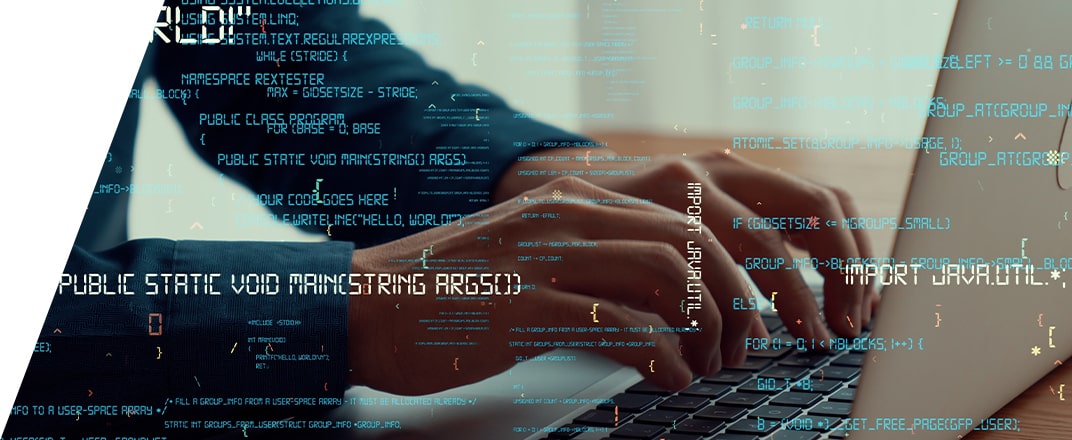B.Tech in Computer Engineering – Software Engineering


B.Tech in Computer Engineering – Software Engineering


The B.Tech in Computer Science and Engineering with a specialization in Software Engineering provides a comprehensive overview of software development operations and practices like DevOps and Agile. It encompasses various activities beyond conventional development and emphasizes a systematic approach to design and develop applications. Graduates of this program need creative problem-solving skills, a deep understanding of software development processes, and technical expertise to create innovative and reliable solutions.
Software engineering is an immense field of study that entails several activities beyond the ordinary development of software. The field covers various applications that are used to develop and design systematic approaches to software development processes, such as DevOps and Agile. There are many software development tasks prevailing in the world today. Producing a software solution requires a systematic approach and a thorough understanding of the problem at hand. In modern organizations, software engineers have tasks that are more challenging than just developing software products. Software engineers need to be equipped with both creative and technical skills to develop high-quality solutions. Technical expertise is a crucial aspect of software engineering, as it enables engineers to develop effective solutions.
On completion of the Software Engineering program, students will possess the following program specific outcomes:
A student who has passed 10+2 examination (level 4.0) with Physics and Mathematics as mandatory courses, along with one of the following: Chemistry / Computer Science / Electronics / Information Technology / Biology / Informatics Practices / Biotechnology / Technical Vocational subject / Agriculture / Engineering Graphics / Business Studies / Entrepreneurship, shall be eligible for admission to B.Tech. programmes. Obtained at least 45% marks (40% marks in case of candidates belonging to reserved category) in the above subjects taken together.
OR
Passed D.Voc. Stream in the same or allied sector.
(The University will offer bridge courses in Physics and Mathematics, along with Chemistry / Computer Science / Electronics / Information Technology / Biology / Informatics Practices / Biotechnology / Technical Vocational subject / Agriculture / Engineering Graphics / Business Studies / Entrepreneurship, for the students coming from diverse backgrounds to prepare level playing field and desired learning outcomes of the programme).
RESERVATION CATEGORY: The University follows the percentage of Reservation for SC/ST & OBC Category as prescribed by the Central Government.
Passed a minimum three-year / two-year (Lateral Entry) Diploma examination (Level 4.5) with at least 45% marks (40% marks in case of candidates belonging to reserved category) in any branch of Engineering and Technology.
OR
Passed B.Sc. Degree from a recognized University as defined by UGC, with at least 45% marks (40% marks in case of candidates belonging to reserved category) and passed 10+2 examination with Mathematics as a subject.
OR
Passed B.Voc/3-year D.Voc. Stream in the same or allied sector.
(The University will offer suitable bridge courses such as Mathematics, Physics, Engineering drawing, etc., for the students coming from diverse backgrounds to achieve desired learning outcomes of the programme)
Bachelor of Technology (Lateral Entry to Third Year): UG Diploma in Engg (Level 5.0)
Bachelor of Technology (Lateral Entry to Final Year): B.Voc. in relevant discipline (Level 5.5)
Enhance your B.Tech experience with the option to pursue a Minor Degree from IIITH and gain unique opportunities for academic and professional growth!
Key Highlights of the UG Minor Degree Program from IIITH:
Certificate Issuance:
Minor Degree Recognition:
Research Internships:
Note:
Duration of the program: 4 years
Department Specific Electives |
|||||||||||||
| DSE Tracks | Elective-I | Elective-II | Elective-III | Elective-IV | Elective-V | Elective-VI | |||||||
| 5th Semester | 6th Semester | 6th Semester | 7th Semester | 7th Semester | 8th Semester | ||||||||
| Track - I | Cloud Developer | Cloud Computing and Virtualization | API Programming | Micro-services Architecture | Containers and Dockers | Cloud Web Services | IDE (Integrated Development Environment) on Cloud | ||||||
| Track - II | Full Stack Developer | Communication Protocols | Enterprise Java Programming | Frameworks for Full-stack development | Data Modelling with NoSQL Databases | UI/UX Design Principles | Repository Maintenance on Git | ||||||
| Track - III | Security in Software Engineering | Information and Network Security | Cyber Security | Secure Programming | Security Testing | Software Security | Ethical Hacking | ||||||
Computer Science and Engineering (Open Elective Baskets) |
|||
| Sl. No | Finance and Accounting | Entrepreneurship and new venture creation | Marketing and Management |
| 1 | Finance for non-finance professionals | Entrepreneurship Theory and Practice | Marketing Management |
| 2 | Wealth Management | Launching and managing an enterprise | Consumer Behavior |
| 3 | Indian Financial System | Business Plan and Project Implementation | Brand Management |
| 4 | Financial Reporting | Sustainable Entrepreneurship | Product Management |
Students are provided with a structured learning path integrated with contributions from the following organizations. This approach facilitates a holistic comprehension of diverse facets within the field, empowering students to cultivate specialized skills and knowledge as they progress through their academic journey.